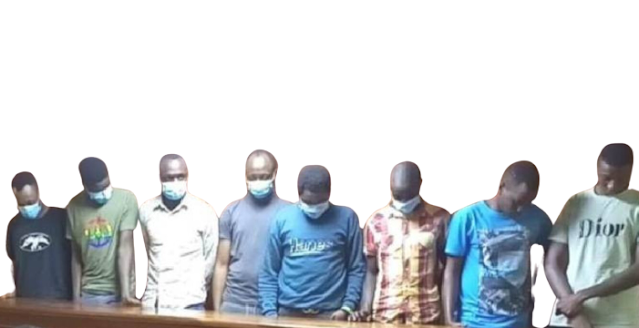Wednesday, November 13, 2024 - An interesting case hit the courts this week where the prosecution presented a high-profile case involving the theft of Ksh 449.6 million from the Fuliza mobile lending platform by Safaricom.
Seven suspects, including Gideon Kipkirui, Kipkemoi Isac, Edwin Kipkorir,
Nelson Kamau, Gideon Kibet, Jonnes Kipkurui, and Gedion Kipkoech were arraigned
before the Anti-Corruption High Court and accused of laundering the funds
through multiple bank accounts and purchases of luxury vehicles.
The court, after reviewing the prosecution’s evidence, granted the release of
the suspects on bond, pending further investigations into the network of
accounts allegedly used to channel the stolen money.
But as the case garners more attention, questions have emerged about the
broader implications of the theft, particularly regarding the possible role of
insiders.
Some glaring questions remain.
How did 10 people purchase 23,000 SIM cards without triggering any alarms?
How did they bypass the system's usual checks and balances?
Could there have been more than just a couple of rogue employees involved?
An investigation by the Asset Recovery Agency (ARA) found that they received
loans transferred to accounts under fictitious names.
In other words, someone must have had access to these accounts or at least the
power to manipulate them.
A simple "sim card registration" doesn't guarantee access to Fuliza's
loan system, especially not at the scale seen in this case.
The court has since ordered the forfeiture of various high-end vehicles and
motorbikes purchased with the stolen funds.
Justice Patrick Otieno ruled that these assets should be transferred to the
Asset Recovery Agency (ARA) a move indicative of the serious breach at hand.
But who allowed such a breach to occur?
How was it that someone with only a basic bank account, showing minimal or no
activity, suddenly found millions flowing through their accounts from multiple
phone numbers?
Money was being transferred across numerous bank accounts and M-Pesa wallets
often in suspiciously large sums.
Take the case of one of the suspects, Kipkirui, whose M-Pesa account received a
total of Ksh 35 million in a single year which he subsequently used to buy a
Subaru Forester and make other large withdrawals.
They knew exactly how to navigate the system and there are strong indications
that they had helpwhether from inside the company or from external
collaborators.
The court also heard how Kipkemoi Isaac received over Ksh 1.7 million from
mobile money deposits which were transferred to other wallets, while Edwin
Kipkorir's account received funds from 44 different mobile subscribers.
Nelson Kamau had the largest amount of stolen funds traced to his name,
receiving Ksh 323.8 million, which was then wired to various mobile numbers and
used to purchase vehicles.
Investigators are also probing the involvement of corporate entities like NCBA
Bank, Rensas Investments Ltd, and My Credit Ltd, as they examine how these
companies may have facilitated the laundering of the stolen funds.
The Kenyan DAILY POST.









0 Comments